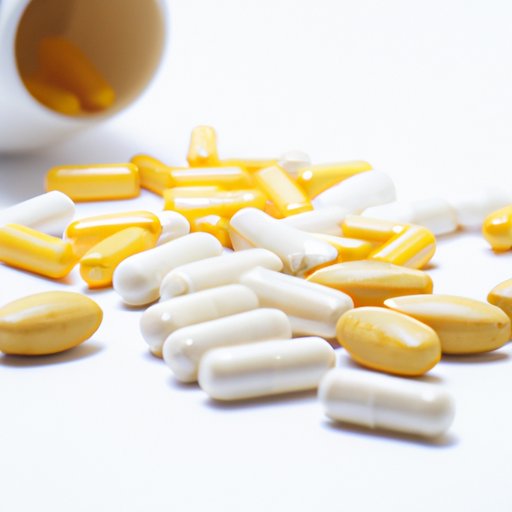
Introduction
Cholesterol is a waxy substance found in your blood that your body needs to build cells. However, when you have too much cholesterol in your blood, it can build up in the walls of your arteries, leading to heart disease and stroke. High cholesterol can be caused by genetics, diet, and lifestyle factors. In this article, we’ll provide practical tips for reducing your cholesterol levels and improving your overall health.
Understanding Cholesterol
There are two types of cholesterol: high-density lipoprotein (HDL) and low-density lipoprotein (LDL). HDL, or “good” cholesterol, helps remove LDL, or “bad” cholesterol, from your bloodstream. Triglycerides are another type of fat in your blood that can contribute to high cholesterol levels. Causes of high cholesterol include genetics, poor diet, lack of exercise, and being overweight or obese.
Dietary Changes
Making changes to your diet can help lower your cholesterol levels. Foods that can help include:
- Oats and whole grains
- Nuts, especially almonds and walnuts
- Fruits and vegetables, especially those high in fiber such as apples, strawberries, and sweet potatoes
- Fatty fish, such as salmon and tuna
It’s also important to pay attention to how you prepare your meals. Baking, grilling, or broiling instead of frying can reduce the amount of saturated and trans fats in your diet. Portion control is also key, as overeating can lead to weight gain and increased cholesterol levels.
Exercise Routine
Regular exercise can help improve cholesterol levels by increasing HDL cholesterol. Cardiovascular exercise such as brisk walking, running, or cycling, can help improve heart health. Strength training can also be beneficial, as more muscle mass can lead to a higher metabolic rate and improved cholesterol levels. Stretching may not directly affect cholesterol, but it can help with flexibility and overall physical health.
Alternative Supplements
Supplements and vitamins such as plant sterols, fish oil, and niacin have been shown to help lower cholesterol levels. However, it’s important to note that supplements should not replace a healthy diet and regular exercise routine. Additionally, not all supplements are regulated by the FDA and may have side effects or interact negatively with prescription medications.
Avoiding Bad Habits
Smoking and excessive alcohol consumption can both contribute to high cholesterol levels and heart disease. Quitting smoking or reducing alcohol intake can have a positive impact on overall health. Support groups, counseling, and nicotine replacement therapies can be helpful in quitting smoking, while limiting alcohol intake to one drink per day for women and two drinks per day for men can help improve cholesterol levels.
Medications
Medications such as statins, fibrates, and bile acid sequestrants can be prescribed to help lower cholesterol levels. These medications can be effective, but they may have side effects or interact negatively with other medications. It’s important to speak with your healthcare provider to determine if medication is necessary and which type of medication is appropriate for you.
Maintaining Progress
Once you’ve made lifestyle changes to improve your cholesterol levels, it’s important to continue monitoring your levels regularly. This can be done through blood tests ordered by your healthcare provider. Accountability methods, such as setting goals, tracking progress, and working with a healthcare provider or personal trainer can help you stay on track with your diet and exercise goals and maintain progress over time.
Conclusion
Lowering your cholesterol levels can have a significant impact on your overall health and well-being. Making dietary changes, implementing a regular exercise routine, avoiding bad habits, considering alternative supplements, and potentially using medication can all contribute to reducing cholesterol levels. The key is to make sustainable lifestyle changes that you can maintain over time for long-term health benefits.




